VET 2025_ Event Postponement
This is to inform that due to some circumstances beyond the organizer control, "2nd Edition of International Conference on Veterinary Science" (VET 2025) June 09-11, 2025 | Hybrid Event has been postponed. The updated dates and venue will be displayed shortly.
Your registration can be transferred to the next edition, if you have already confirmed your participation at the event.
For further details, please contact us at veterinary@magnusconference.com or call + +1 (702) 988 2320.
Breeding and Genetics
Animal breeding is a discipline of animal science concerned with determining the genetic value of domestic cattle in terms of estimated breeding value (EBV). Animals having better EBVs in growth rate, egg, meat, milk, or wool production, as well as other significant desired qualities, have been selected for breeding. Agricultural cattle production has been transformed all over the world as a result of this. The branch of science dealing with optimising desired genetic features, such as raising animals with leaner meat, is known as animal breeding, genetics, and genomics. Animal geneticists have discovered genes that can improve an animal's development, health, and ability to absorb nutrition. These genetic advancements have the potential to improve output while lowering environmental impact. Animals and livestock account for 40% of global agricultural output and support the livelihoods and food security of almost a billion people around the world. Advances in animal breeding, genetics, and genomics are allowing the industry to become more efficient.
- Sequencing Animal Genomes
- Genomics
- Improving Livestock Breeds
- DNA-Based Technology
- Feed Efficiency
- Breeding Programmes
- Selection
- Quantitative Genetics

Marco Polettini
DVM, Italy
Andreia Freitas
INIAV/REQUIMTE, Portugal
Andreia Freitas
INIAV/REQUIMTE, Portugal
Kedibone Gloria Kgosana
Sefako Makgatho Health Sciences University, South Africa
Nnenna Ugwu
Anglia Ruskin University, United Kingdom
Rubens Dias de Melo Junior
Universidade Federal de Goiás, BrazilSubmit your abstract Today
Important Alert:
X


Title : Analyzing veterinary medicine residues in food: A comprehensive guide
Andreia Freitas, INIAV/REQUIMTE, Portugal
Title : Quantifying changes in facial expression following hot-iron disbudding under procaine hydrochloride and meloxicam treatment in Holstein dairy calves
Nnenna Ugwu, Anglia Ruskin University, United Kingdom
Title : Trypanosoma vivax in and outside cattle blood: Parasitological, molecular, and serological detection, reservoir tissues, histopathological lesions, and vertical transmission evaluation
Rubens Dias de Melo Junior, Universidade Federal de Goiás, Brazil
Title : Characterization of porcine rotaviruses in the Czech Republic
Romana Moutelikova, Veterinary Research Institute, Czech Republic
Title : Determination of Circulating Foot-and-Mouth Disease Virus Serotypes in Kenya (2023)
Hellen Mutua, Foot and Mouth Disease National Reference Laboratories, Kenya
Title : Welfare for Amazonian wild animals
Eliane Cardoso Carvalho Moraes, Jungle Warfare Training Center/ Army, Brazil